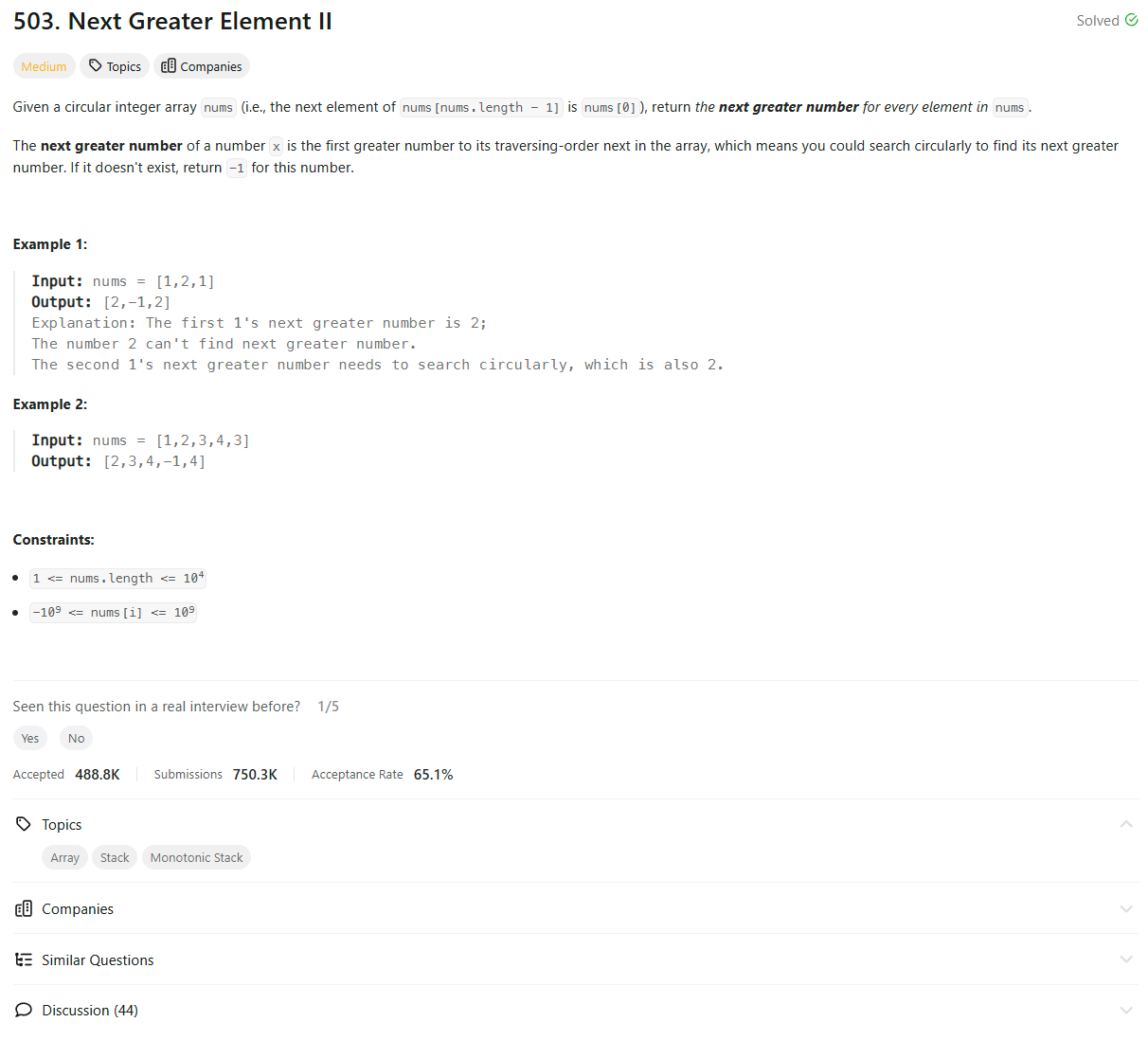Problem of The Day: Next Greater Element II
Problem Statement

Intuition
The problem is to find the next greater element for each element in a circular array. The first thought is to use a stack to maintain a decreasing sequence of indices corresponding to elements. This allows efficient determination of the next greater element as we traverse the array.
In a circular array, we need to iterate beyond the array’s bounds to ensure each element has a chance to check for a greater element that might wrap around. This can be achieved by traversing the array twice using modular arithmetic.
Approach
-
Initialize Variables:
res: An array initialized with-1to store results.stack: A stack to store indices of elements in the array.- Traverse the array twice (using
2 * N - 1iterations).
-
Iterate in Reverse:
- Use the modulo operator (
i % N) to handle the circular nature of the array. - For each element:
- Remove indices from the stack whose corresponding values are less than or equal to the current element (
nums[index]). - If the stack is not empty, the top of the stack gives the next greater element.
- Otherwise, the result remains
-1.
- Remove indices from the stack whose corresponding values are less than or equal to the current element (
- Use the modulo operator (
-
Update the Stack:
- Add the current index to the stack to maintain the decreasing sequence.
-
Return Result:
- After processing all elements, return the
resarray containing the next greater elements.
- After processing all elements, return the
Complexity
-
Time Complexity:
\(O(n)\)
Each element is pushed onto the stack once and popped at most once. Since we iterate through the array twice, the overall complexity is linear relative to the array size. -
Space Complexity:
\(O(n)\)
The stack can hold up tonindices in the worst case.
Code
class Solution:
def nextGreaterElements(self, nums: List[int]) -> List[int]:
N = len(nums)
stack = []
res = [-1] * N
for i in range(2 * N - 1, -1, -1):
index = i % N
while stack and nums[stack[-1]] <= nums[index]:
stack.pop()
if stack:
res[index] = nums[stack[-1]]
else:
res[index] = -1
stack.append(index)
return res